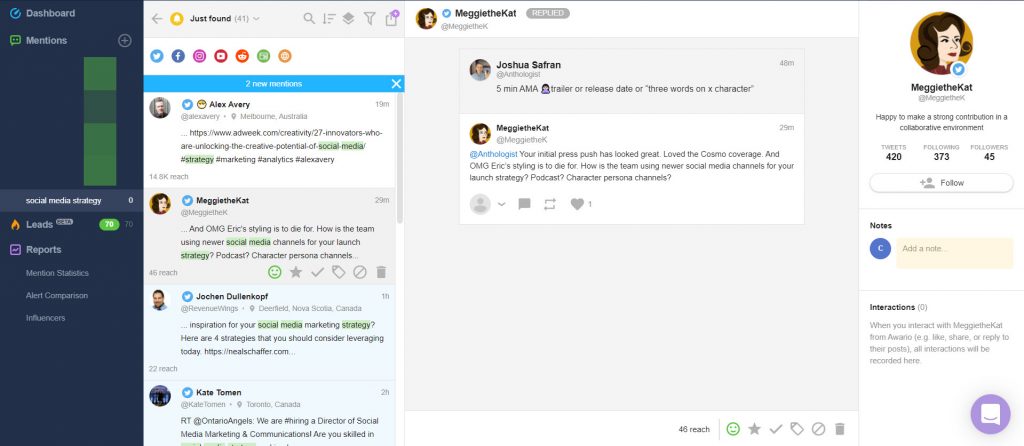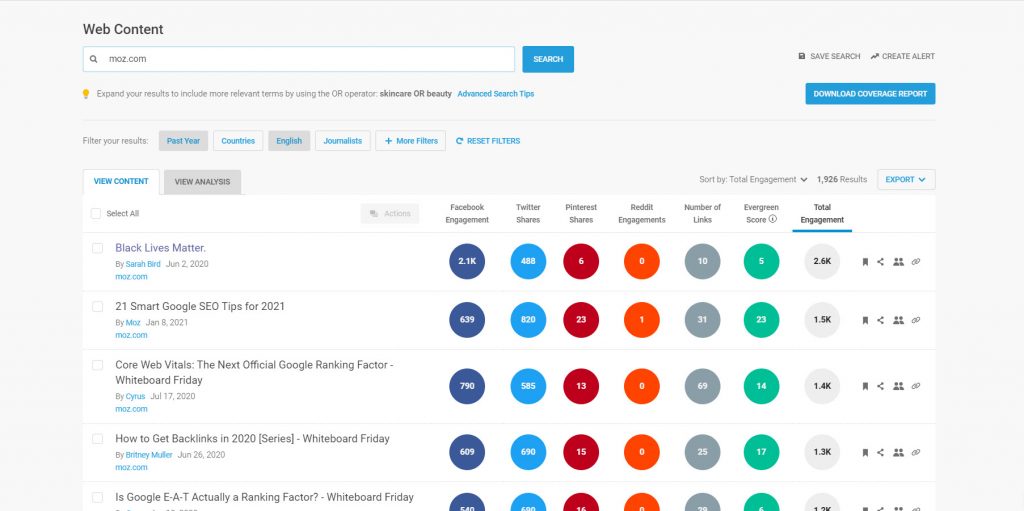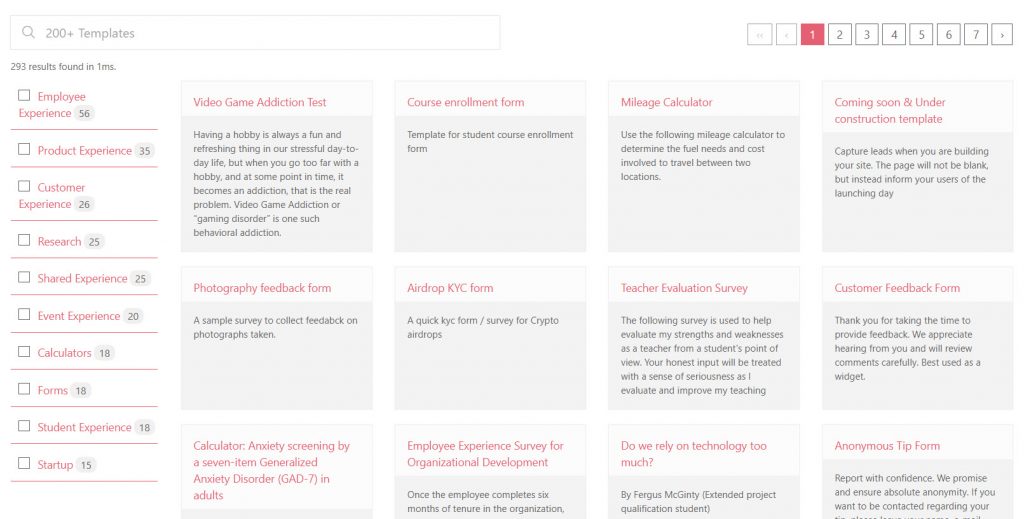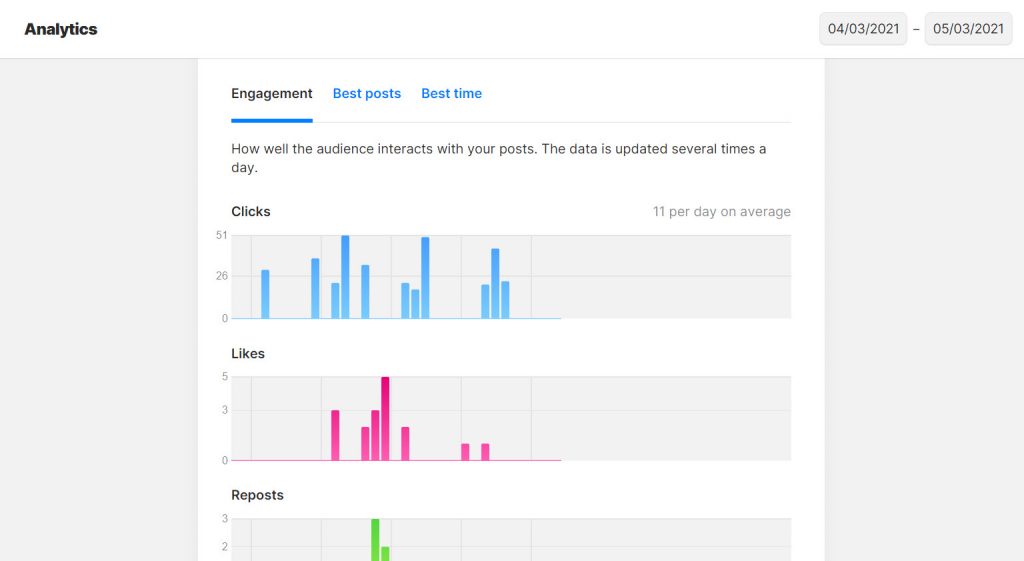5 Ways Businesses Use Social Media for Marketing Research
Marketing research is a vital part of any business’s success. Without it, you risk spending time and money on the wrong marketing campaigns or not understanding your customers’ needs.
Quick Links
This fact means that it’s important for businesses to do in-house marketing research and use social media tools like Facebook, Twitter, Instagram and more to find insights about their target audience.
In this article, we will cover five ways that companies can use social media for marketing research purposes!
1. Listen to what people are saying about your company
Listening on social media is a great place to start market research. In fact, it’s one of the best business advice you’ll ever receive.
By hearing what your audience has to say about your brand on social media, you can make the necessary changes to your business based on their insights and generate more traffic and conversions. It’s also cheaper than traditional market research methods. Automating your social marketing using AI with tools such as Social Studio, is an extremely good way of generating material to be able to monitor sentiment.
Below are ways on how to do social media listening:
First, monitor all company mentions on social media channels like Facebook, Twitter, etc., using tools like Awario.

Doing so will allow you to see what people say in public. So, for example, if they mention your company somewhere else online, that post might show up in one of these two places too!
Make sure to look at other sorts of posts such as pictures from Instagram or YouTube videos if it’s relevant content related to your marketing research question.
Next, you can either use their insights to fuel your upcoming marketing strategy or respond to their posts if necessary. For instance, if the posts potentially damage your reputation online, you must act swiftly and reply soon before things get out of hand.
If your audience is on Twitter and Instagram, you can use hashtag tracking tools to track mentions of your company or its products.
Finally, use tools like Radian to find out who are the most influential people in social media networks that may be interested and related to what you do.
The tool lets you cover a wide range of topics, interests, demographics, and more!
2. Monitor the sentiment of posts and comments
Monitor the sentiment of posts and comments on social media means reading through them to find a particular feeling or emotion. Sentiment analysis aims to determine whether a piece of writing is positive, negative, or neutral.
Understanding what people are saying on social media can be very useful. For example, if you know that people are writing positive posts about a product or brand, it would make sense to advertise that brand to those users.
There are several ways to identify social media sentiment for market research. One way is via social listening or monitoring the conversations in public forums such as Twitter and Facebook.
Another option for marketing research is data mining, which enables you to search by specific terms.
It’s ideal for unearthing the general sentiment that your audience has about your business.
But, keep in mind that not all opinions are the same as others — the thought of those with more followers and more significant social clout holds more weight.
In this case, when gathering social media sentiment, always look at what social media influencers think about your brand.
If they don’t have a positive thing to say about it or they’re lukewarm towards your business, use this as an opportunity to reach out to them and get them to change their tune about your brand. Once they build a more positive attitude after engaging with you, so will their followers towards your brand.
Leveraging on influencers can also boost your content marketing strategy. You can extend your relationship by offering them your products and services in exchange for promoting them to their audience.
3. Spy on competitors’ marketing campaigns
Gathering information about your competitors is essential if you want to compete with them.
However, the seeming invasiveness of social media is a content marketing prediction going around for years now.
In the wrong hands, social media can be abused easily by invading the privacy of their prospects. Worse, some would even sling mud and launch smear campaigns against competitors.
These activities would put your brand in a negative light and would produce the opposite results from what you’re trying to achieve in the long run.
So if you want to get the most out of the gathered data from your audience, you need to make better marketing and business decisions based on your competitors.
And by “spying,” we’re not referring to hacking into their social media accounts. Not at all!
At the same time, spying on your competitors isn’t the same thing as checking out their social media profiles; it’s much more advanced than that.
You should spy on your competitors on social media because it can help you get a better idea of what they’re doing. It will help you improve your product or service by learning where you stand compared to them and their offerings.
A tool like Buzzsumo, for instance, allows you to check the best-performing posts of similar sites over time,

For example, if your competitors are getting lots of engagement with video content, consider creating a few to share on your social media account.
Or if they’re running a guest blogging campaign in which your competitors are getting massive shares from the content they’ve written on different sites, you can do this as well.
Take a cue from your competitors’ social media performance and use it as content marketing examples to inspire your strategy.
4. Conduct surveys
Conducting surveys on social media refers to the process of getting your target market’s feedback through a form of social media.
Conducting surveys using this method is helpful because it allows you to build a better relationship with your customers and gather more information about their preferences. Therefore, you can create engaging content on social media using the insights from the survey.
Running surveys complements your efforts of listening and monitoring what people say about you on social media. In addition, by getting respondents to answer your surveys, you create a touchpoint where you can connect with them again even after the survey is complete.
For example, since you gathered their email addresses, you can send them email campaigns to build better relationships with them.
But before you think of what you can do with them, you need to create your survey first. Tools like BlockSurvey and Survey Monkey let you build surveys without any design experience. These tools also offer pre-designed templates you can use and edit, so you don’t have to start from scratch.

When sharing your surveys on social media, make sure you pick the right platform. Facebook is an excellent place for this because it does not censor users’ responses and has plenty of features to help you in your research.
Also, you can use surveys to run lead generation ads for your business. It’s best to incentivize your surveys with content upgrades to increase conversions.
5. Analyze results
With social media, it’s essential to know if your efforts are working. Social analytics can help you determine how well your brand is doing by measuring likes, shares, and comments on each platform.
Most social media platforms have in-built analytics and reporting features.
With platforms like Facebook, Twitter, Instagram, and LinkedIn offering their analytics dashboards that show how many likes each post received as well as which positions were most influential on
To measure the success of your social media campaigns, you need to analyze data and use it for future marketing initiatives.
Other social media management tools like Amplify allow you to monitor and scale your performance and access various social networks in a single dashboard.

They combine information from different social platforms and show you aggregate data of your best posts based on various engagement metrics and the best times to post them.
From here, you can see which posts receive the most engagement and the ones that didn’t. And since the goal of social marketing is to increase your visibility online, you must reform your strategy to focus on the ones that worked to improve your engagement further.
You can even extend the research of your social media performance from different channels. For example, you can send emails from your list asking them what they think of your social media performance and other suggestions to improve your engagement. Of course, you must have lots of people on your list to make this work. If you don’t have a list yet, jumpstart it using email popups to drive more attention to your sign-up forms.
Conclusion
Social media is a great way to monitor sentiment and see what people are saying about your company.
You can also spy on competitors’ marketing campaigns, conduct surveys, analyze the results of those surveys for insights into how you might improve your campaign, or use social listening tools to track conversations happening around topics that relate to your business.
What other ways businesses can use social media for marketing research?
How to Use AI-Powered SEO Tools for WordPress eCommerce
SEO is a critical factor in the success of any e-commerce WordPress store. As competition…
0 Comments11 Minutes
Why Short-Form Videos Are the Future of Content Marketing
Your Instagram customers spend over 50% of their time watching short-form videos and reels. Rather…
0 Comments12 Minutes
The Role of Digital Marketing in Business Growth
Online marketing touches every aspect of a business, whether it is initiating the idea or for an…
0 Comments3 Minutes
AI Meets Authenticity: Balancing Automation and Human Touch in Content Marketing
Is your brand starting to sound like a robot? In a world where algorithms write faster than any…
0 Comments8 Minutes
Essential Tools for Enhancing Web Design and UX Hosting
Have you ever visited a website that felt slow, clunky, or confusing? A website that is poorly…
0 Comments11 Minutes
How a Mini Cart Transformed My Store’s Shopping Experience
Okay, real talk—running an online store is hard. You think you’ve got everything figured out, you…
0 Comments9 Minutes
Balancing Your Security Initiatives With Industry Compliance Requirements
Managing a business today comes with a number of daily battles that need to be fought. Resources…
0 Comments11 Minutes
Best plugins to enhance the customer shopping experience
Customer experience is a key part of every online store. A good experience helps customers find…
0 Comments7 Minutes








